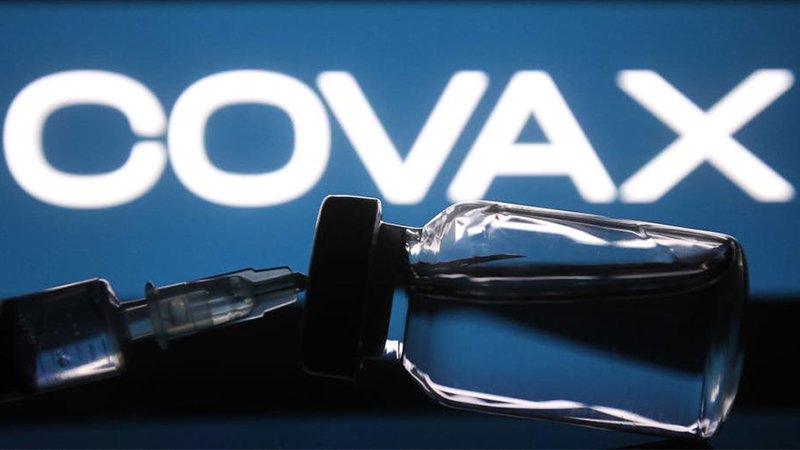Catherine Osborn
Foreign Policy
Will the pandemic’s delta phase be more equitable?
Last week, Paraguayan President Mario Abdo Benítez spoke with unusual candor about the problems plaguing the world’s only multilateral mechanism for equitable COVID-19 vaccine distribution, COVAX. “COVAX did not work,” he said of the initiative, operated jointly by the World Health Organization (WHO) and two nonprofits.
Last October, Paraguay made its first payment for an order of 4.3 million vaccine doses from COVAX, which was designed to get countries better prices than deals reached directly with manufacturers. But COVAX had only delivered the country 340,800 doses by the end of July. As of the most recent official data on July 25, just 4 percent of Paraguayans had been fully vaccinated.
“We bet on the COVAX mechanism to generate equity,” Abdo Benítez said. “I have to say it with pain. I cannot stay quiet.”
Globally, COVAX is running half a billion doses short of its delivery goals. Though one of its architects said COVAX aimed to “ensure that ability to pay does not become a barrier to accessing [vaccines],” the opposite appears to have occurred. Vaccine-makers have been reluctant to sell to COVAX, and wealthy countries bypassed the initiative to scoop up much of manufacturers’ available supply in direct deals. And there has been little technology transfer to expand global vaccine production, meaning that a delay at one plant can cause huge backups that ripple around the world.
Global vaccine distribution has overwhelmingly functioned according to the preferences of pharmaceutical companies and wealthy countries, rather than through an equity-based system. Though the United States, the largest vaccine donor to date, says it allocates doses based on criteria aimed at saving lives, it is doing so at a scale that is a mere one-hundredth of what the WHO says is necessary to get the pandemic under control globally.
Now, as the delta variant takes hold, several Latin American policymakers are scrambling to redefine their vaccine strategies and boost local production.
Seeking new supply. With its COVAX shots delayed, Paraguay has secured new contracts with Pfizer and Moderna. The Dominican Republic, which also complained about COVAX delays, increased its orders from China’s Sinovac.
These moves have come with their own challenges. An official from Paraguay, which diplomatically recognizes Taiwan, said a subsidiary of Chinese manufacturer Sinopharm canceled a vaccine contract for “geopolitical reasons,” while Pfizer reportedly pressured Latin American governments to sign over unprecedented sovereign assets as guarantees against the cost of potential lawsuits.
Countries have also slowly worked to build local production capacity. A plant in Argentina had its first full course of locally produced Sputnik V doses approved for quality this week. Cuba is exporting its homemade vaccine Abdala to Venezuela and may soon send it to Bolivia, while Brazil’s Butanvac and Mexico’s Patria shots are in clinical trials. On Wednesday, Chile announced plans to build a plant that will fill and finish doses of Sinovac’s vaccine.
At the request of the Community of Latin American and Caribbean States, the United Nations’ Alicia Bárcena presented the group with a road map to strengthening regional vaccine access at its annual meeting last week. It includes collaborating on intellectual property (IP) access and bringing more production capacity online.
Weighing compulsory licensing. While negotiations on a special IP waiver for COVID-19 health technologies are stalled at the World Trade Organization (WTO), an existing WTO agreement already permits countries to sidestep pharmaceutical patents and other IP rights in certain emergencies. Chile, Colombia, and Ecuador have passed resolutions facilitating this process in the face of COVID-19.
In Brazil, President Jair Bolsonaro’s executive branch has opposed an IP waiver. But the country’s legislature is in the final stages of approving a bill that would allow Congress to issue compulsory licenses according to WTO agreements, permitting local firms to produce and export COVID-19 vaccines and therapeutics without the patent holders’ consent. Brazil used the threat of such licenses in the early 2000s to pressure pharmaceutical companies to lower HIV drug costs.
The Brazilian bill is backed by groups ranging from AIDS activists and Black activists to center-right senators—a sign of the broad support that remains in the country for this kind of measure.
The cost of current trends. Health experts have warned that, the slower the rate of vaccination around the globe, the more likely it is that new—and potentially more lethal—variants of the coronavirus will develop. The International Monetary Fund (IMF) estimates that a roughly $50 billion push to vaccinate 40 percent of all countries’ populations by the end of 2021 and 60 percent by mid-2022 will bring $9 trillion in global GDP gains.
Continuing vaccinations at their current scale has consequences for political stability and migration, too. For example, more Nicaraguans were encountered at the US southern border in the last three months than in any 12-month period in the last 20 years. Political repression in Nicaragua plays a role in this, but so too does the fact that Costa Rica’s tourism-focused economy, where Nicaraguan migrants usually seek work, remains hard-hit by COVID-19.
Catherine Osborn is the writer of Foreign Policy’s weekly Latin America Brief. She is a print and radio journalist based in Rio de Janeiro. Twitter: @cculbertosborn
Disclaimer: This article first appeared on Foreign Policy, and is published by special syndication arrangement.
























